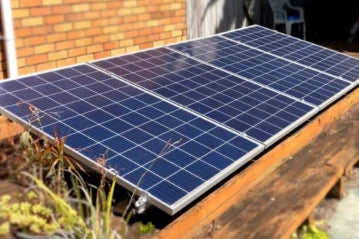
Solar power has gained significant momentum as a clean and sustainable energy source. As solar panels become more commonplace, the need for reliable energy storage solutions has also increased. Solar batteries play a crucial role in this regard, allowing homeowners and businesses to store excess electricity generated by solar panels for later use. However, a question that often arises is whether it's possible to charge a solar battery directly from the grid. In this article, we will explore the intricacies of solar batteries and shed light on the concept of grid charging for these energy storage devices.
Understanding Solar Batteries and Their Function
To understand the possibility of grid charging a solar battery, it's essential to comprehend the role and functionality of these devices. A solar battery is designed to store the surplus energy produced by solar panels during the day when the sun is shining, enabling homeowners to utilize this stored energy during the night or when the sun is not at its peak. The primary purpose of a solar battery is to enhance energy self-sufficiency, reduce reliance on the grid, and optimize the utilization of renewable energy.
Grid Charging vs. Solar Charging: Key Differences
Grid charging and solar charging are fundamentally different processes when it comes to replenishing the energy stored in solar batteries. Solar charging involves harnessing energy directly from the sun through solar panels, converting it into electricity, and storing it in the battery. On the other hand, grid charging relies on drawing electricity from the utility grid to recharge the battery. This grid electricity could originate from conventional power plants or other renewable sources like wind or hydro. It's worth noting that grid charging is typically used as a backup option or when there is an insufficient amount of sunlight to fully recharge the solar battery.
In many cases, homeowners with solar power systems are eligible for net metering. Net metering allows excess electricity generated by solar panels to be fed back into the grid, effectively running the electric meter backward. When there is a shortfall of energy, such as during nighttime or periods of high energy consumption, the homeowner can draw electricity from the grid, using the credits accumulated during sunny periods. However, this net metering arrangement does not directly charge the solar battery from the grid but rather utilizes the grid as a virtual storage system.
Grid Charging as an Alternative for Solar Batteries
The concept of grid charging for solar batteries is gaining attention due to advancements in energy management technologies. These technologies enable bidirectional energy flow, allowing the battery to draw power from the grid when needed and return excess energy to the grid during periods of high generation. In this scenario, the solar battery acts as a bridge between the solar power system and the grid, facilitating a more balanced energy supply.
One of the potential benefits of grid charging for solar batteries is cost savings. By utilizing off-peak electricity rates to charge the battery and discharging it during peak demand periods, homeowners can optimize their energy consumption and reduce electricity bills. Additionally, grid charging can enhance grid stability by providing localized energy storage that can be used to offset fluctuations in solar generation or provide backup power during outages.
However, several challenges and considerations exist when it comes to grid charging for solar batteries. The compatibility between different battery technologies and grid systems is one such challenge. The grid's infrastructure may need to be upgraded to support bidirectional energy flow and enable seamless integration of solar batteries. Moreover, regulatory and policy frameworks must be developed to govern grid charging arrangements, ensuring fair compensation for excess energy supplied to the grid.
Conclusion
While grid charging for solar batteries is an emerging concept, it holds the potential to revolutionize the way we utilize and store renewable energy. Solar batteries already play a vital role in enhancing energy self-sufficiency and reducing reliance on the grid. The ability to charge solar batteries from the grid can further optimize energy management, reduce costs, and contribute to grid stability. However, technological advancements, policy support, and collaborative efforts from various stakeholders are necessary to overcome the challenges and unlock the full potential of grid charging for solar batteries. As we continue to embrace solar power and renewable energy, exploring innovative solutions like grid charging will undoubtedly shape a sustainable and resilient energy future.

0 comments